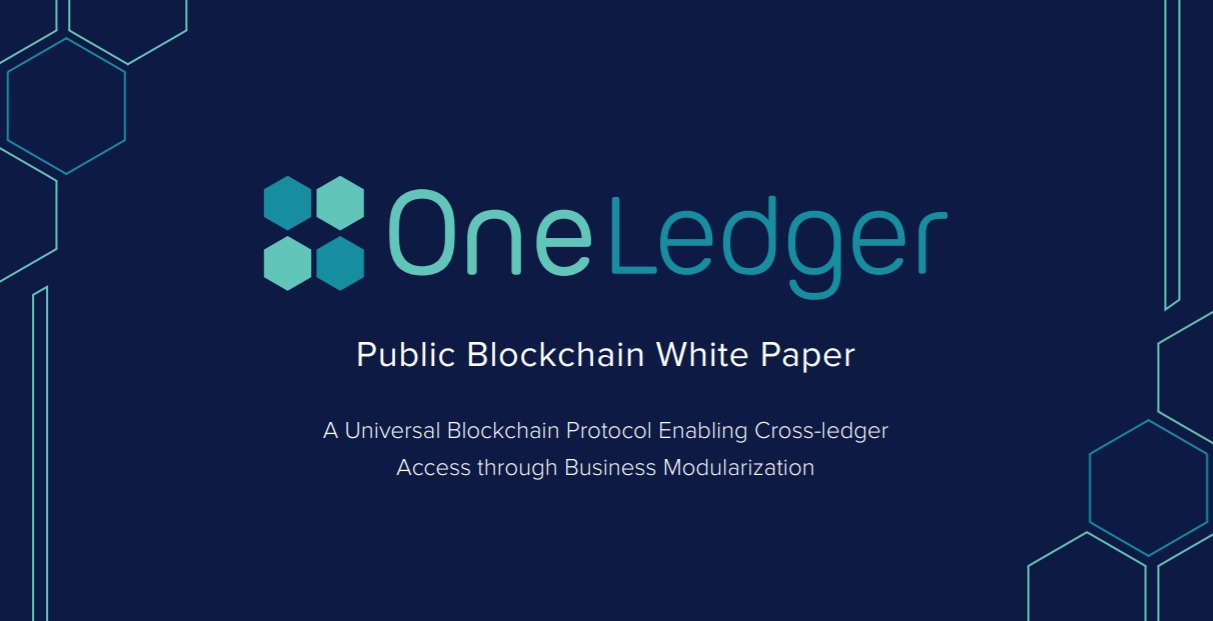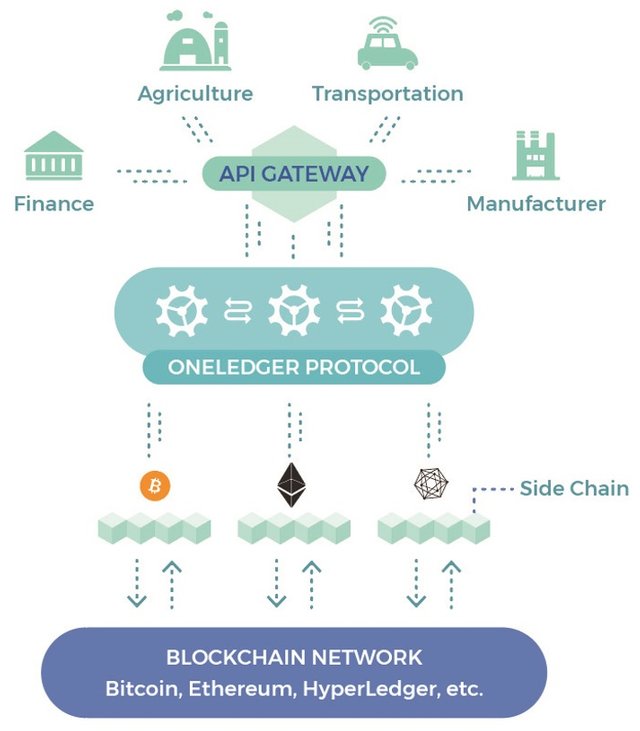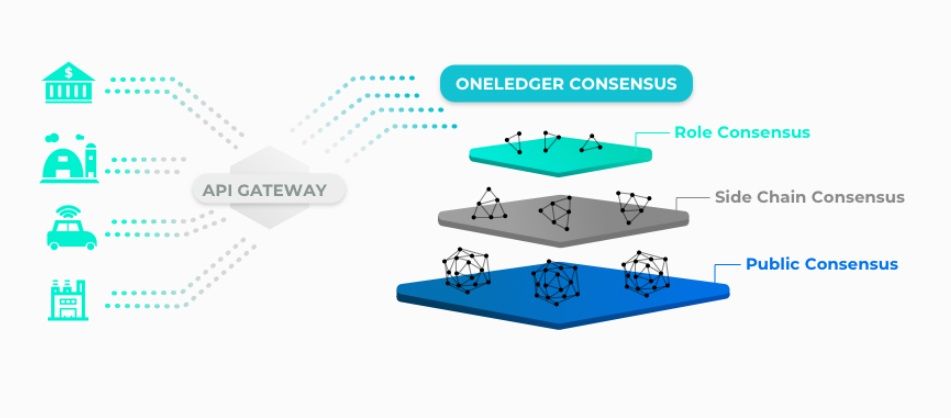OneLedger — A Universal Blockchain Protocol Enabling Cross-ledger Access through Business Modularization

1. What Is OneLedger?
OneLedger is a cross-ledger agnostic protocol that enables high-performance scaling using a sharded and modified practical Byzantine Fault Tolerant consensus scheme — which allows for either a permissionless or permissioned setting. By coupling public key infrastructure (PKI) with identity management, nodes (and node operators) will have a defined trust hierarchy that allows them to participate in the consensus of the OneLedger chain or any sidechain. OneLedger sidechains can be synchronized with the current state of other networks (Ethereum, Bitcoin, etc.).

OneLedger’s mission is to simplify businesses’ adoption of blockchain technology and its integration into their specific business applications and products. Through OneLedger, both businesses and individuals can leverage the platform to create both public and private blockchains with their own uniquely-identified network consensus. With the use of role control, enterprises can also separate read and write access on their permissioned network. Some industries, like healthcare, require people with the appropriate roles to view certain records. In addition, businesses will be able to create and manage their own community-owned digital wallet and credit system.
2. How Does OneLedger Work?
OneLedger is a three-layer consensus protocol designed to provide efficient integration of different blockchain applications.

Role Consensus - The first layer utilizes a “role-based” consensus protocol tied to the digital identity of business participants, with each role linked to an individual node. Contracts generated by this layer define the roles and their respective behaviours.
The contract generated by this layer will be generated again as one that is executable on a selected public blockchains such as Ethereum. Through their defined key and digital signature, users are linked to their role in the business, enabling transparency and traceability of anyone who writes information on the blockchain.
Channel Consensus (i.e. Side Chain Consensus) - Side Chain Consensus allows for the execution of interactions (transaction or business actions) between roles. When new block data is recorded, Byzantine Fault Tolerant Partial Synchronization is utilized within the channel among all participants.
The Side Chain Consensus will require all participants to vote and consensus is reached when more than ⅔ of voters have reached agreement. When consensus is achieved, the written block data is broadcasted to all nodes in the channel and stored. Side Chain Consensus also helps initiate transfers between public chains.
Public Consensus - When a transfer between public chains is requested, the pre-consensus step is conducted on the sidechain, with a pre-consensus block sending a proposal to the public chain. The proposal is then voted on by validators of the public chain to lock or unlock assets from the public chain.
If the proposal is returned successfully from both public chains, the pre-consensus block is committed. Once ⅔ of the sidechain nodes commit this block, it is finalized on OneLedger.
3. OneLedger Team and Advisors
The OneLedger team has 9 team members listed with the following being the core:

David Cao, Founder and CEO — Over 16 years’ experience in commerce, with his most recent experience being with Xerox as Lead Commerce Consultant.
Alex Todd, CTA — Over 30 years’ cumulative experience in general and technological corporate governance, with his most recent experience being with PRESTO as CTO.
Stephen Li, Lead Engineer — Over 15 years’ experience in software development and consulting, with his most recent being as Founder of Services Informatiques YANG-LI INC.
Paul W. Homer, Lead Blockchain Engineer — Over 30 years’ cumulative experience in software engineering and analysis, with his most recent being as an application consultant for CIBC.
The team also has a suite of advisors including, Trevor Koverko, CEO of Polymath, Matthew Niemberg, Distributed Ledger Consultant, Craig G. Brown, Senior Canadian Legal Advisor, Jor Law, Founder of verifyinvestor.com, and Mervyn Chng, Managing Director at Gwei Capital.

4. Partners & Investors

5. Conclusion 8/10
Opportunities:
Great idea and solution for key blockchain problems
The team members and advisors are comprised of a good mix of technical and business-minded people
Low hard cap
High HYPE in the crypto community despite it’s a new project
Launch MVP with cross-chain consensus in Q2 2018
Concerns:
Release first version of the OneLedger platform in 2019